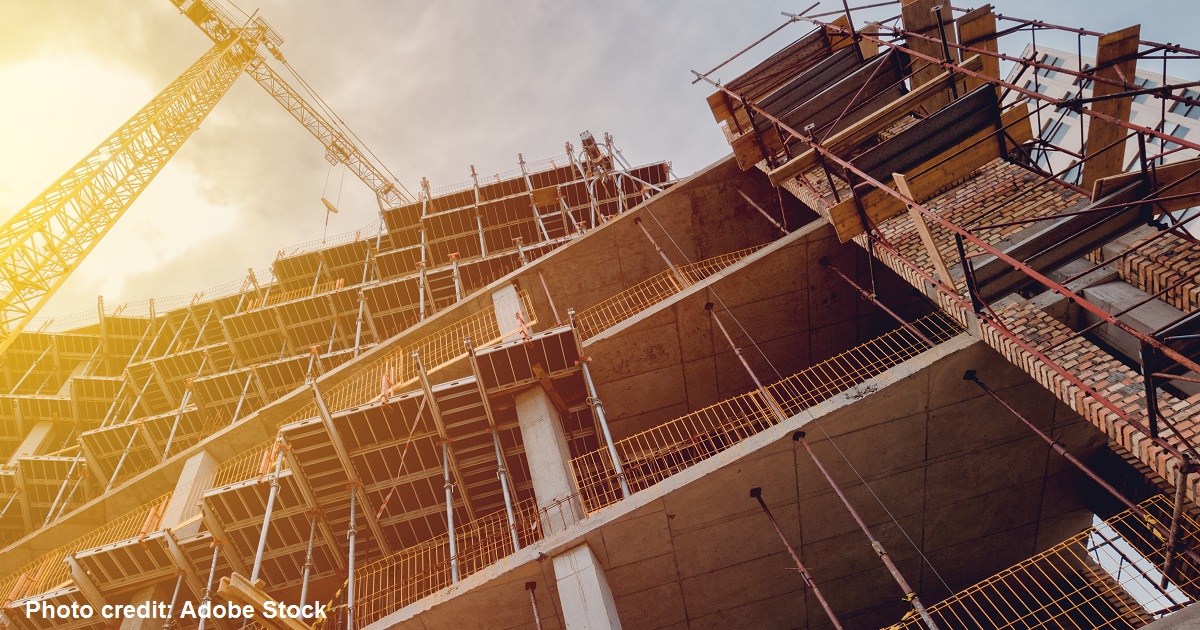
Emerging Technology, Government Business
Article | October 7, 2022
People often believe that bond elections only fund construction projects. Although it’s true that construction opportunities do occur when bond packages are approved, sales of certificates of obligation or general obligation spawn hundreds of other contracting opportunities. Companies that provide services related to technology, energy systems, furniture, landscaping, and security also benefit. Voters already have approved an abundance of bond packages this year, and more are pending in November elections.
Although it’s true that construction opportunities do occur when bond packages are approved, sales of certificates of obligation or general obligation spawn hundreds of other contracting opportunities.
Georgia
The state of Georgia has funding of $1.133 billion that will be used for new projects, the purchasing of equipment, repairs and renovations to existing facilities. Some of it will also be used to launch new construction projects. School districts have been allocated approximately $378 million and $302 million is available for projects at the University System of Georgia. The Department of Transportation will receive over $152 million for roads, bridges, and rail projects, and the Technical College System of Georgia will receive approximately $99 million for various projects. The state also allocated $20 million for a new conference center at Lake Lanier Island and $12 million for infrastructure improvements at the Georgia World Congress Center in Atlanta.
West Virginia
The Cabell County Board of Education authorized the issuance of $87.5 million in public school bonds after it was approved by voters in August. Architectural firms and design teams will be in high demand soon as construction is planned for early 2021. Projects include rebuilding Meadows Elementary and Milton Elementary and construction of a new Davis Creek Elementary facility. Other school buildings will receive major renovations including new windows, doors, roofing, HVAC systems, sprinkler systems, and security upgrades.
New York
Bond funds were approved in Lewis County for a $33 million capital project to construct a new surgical pavilion and renovation of the existing Medical-Surgical floor. Bidding will be solicited in January and February 2021 with construction to begin immediately. The project includes construction of a 36,224 square-foot surgical pavilion as well as the renovation of about 18,889 square feet of the existing Medical-Surgical inpatient floor.
California
The state of California recently announced the sale of $2.65 billion of revenue bonds to benefit various projects at the University of California (UC). About $1.15 billion will be spent on campus projects. Regents for the university system announced that about than 50 construction projects at all 10 UC campuses are planned. Projects include improvements to the Agriculture and Natural Resources Research and Extension Center and Franz Hall. Seismic upgrades are planned for the Irvine Campus, the engineering tower, four gateway quad buildings, and the social sciences buildings. More earthquake-resistant improvements will be made at a number of additional facilities.
Louisiana
In August, $140 million in bonds were approved for construction of a new high school and the completion of 13 other construction and improvement projects for Ascension Parish Public Schools. Approximately $79.5 million has been set aside for a new high school which will be located in Prairieville. Solicitation documents for contractors will be released in 2021. Other projects that have been approved include $27 million in renovations at East Ascension High School, $7.5 million for artificial turf at four high school stadiums plus the stadium at the new high school, $4.4 million for a classroom addition at St. Amant Primary, and $2.3 million for improvements at Donaldsonville High School.
Texas
Voters recently approved $76.6 million for the Plainview Independent School District and this funding will be used to consolidate and restructure elementary and middle school facilities. Some of the revenue will also be used to update security and technology. The proposed building plan consolidates six elementary campuses into three with pre-K programs and increased capacity at each campus. Some solicitation documents are expected in November, and others are planned for early 2021.
Hawaii
The state of Hawaii successfully sold $995 million of general obligation bonds, and the funding will be used to finance capital improvements for various public buildings, elementary and secondary schools, community college and university facilities, public libraries, and parks.
As 2020 draws to a close over the next few months, millions more in funding for all types of projects will result as November bond packages are placed on the ballot for voter approval. Even in the midst of a pandemic, public assets must be maintained, expanded, and made safe for citizens. The activity generated by the bond elections stimulates local economies, and the projects that result create thousands of jobs as well.
Mary Scott Nabers is president and CEO of Strategic Partnerships Inc., a business development company specializing in government contracting and procurement consulting throughout the U.S. Her recently released book, Inside the Infrastructure Revolution: A Roadmap for Building America, is a handbook for contractors, investors and the public at large seeking to explore how public-private partnerships or joint ventures can help finance their infrastructure projects.
Read More

Article | May 27, 2021
The pandemic has blown up entrepreneurs and start-up ecosystems, so government support for start-ups has become critical.
The majority of them faced cash shortages and a lack of venture capital. For start-ups, cash is the most pressing issue. Furthermore, start-ups experienced a slow fundraising process accompanied by investor indifference.
Furthermore, the global workforce was not left untouched by the spillover. Start-ups began to lay off employees and reduce pay. According to StartupGenome research, three out of every four employees were letting their employer down.
While 39% of them laid off 20% or more of their workforce, two-thirds admitted to laying off 60% or more of their full-time employees. In the United States, the economy experienced the sharpest decline in employment, with 20.5 million people losing their jobs.
Following that, in order to address this and reduce the pandemic's impact on start-ups, the governments of many countries have stepped in to save their country's start-up ecosystem.
We've listed a few of the government's initiatives to help start-ups during the current cash crunch.
Direct grants and zero-interest loans:
Right now, cash is the most important concern for new businesses. Grants are regarded as the most beneficial policy instrument (29%), followed by loans (12%).
Access to venture capital investment:
If history is any guide, venture capital activity will likely decline in 2020 as well. This creates a quandary for the 18% of start-ups that require access to financing tools to increase investment.
Employment support schemes:
COVID-19 has had an impact on workforces all over the world. The US lost a record 20.5 million jobs in April, the fastest and sharpest drop since the government began tracking the data. Given these circumstances, it's no surprise that 17 percent of start-ups rank immediate employee protection as one of their top priorities.
Read More

Government Business
Article | July 14, 2022
Blockchain has started to take off. It is now seen as an important part of development. More and more countries and governments are optimistic about joining the race of leveraging blockchain to commence different projects. It can be used in process optimization, cybersecurity, or integrating connected devices. This distributed ledger format is intended to support both public and government sectors, concluding, identity management, digital currency, payments, health care, land registration, voting, and management of legal entities.
Need For Blockchain in Government Sector
To provide maximum governance, the government must transform itself digitally from both intra-departmental and interdepartmental perspectives. As different departments run on different disjoint technologies, it leads to the concern of data consistency and data integrity. Due to which it becomes highly essential to incorporate multiple digital identities based on citizens in each department to make cross-referencing an easier task. And this is what Blockchain is for and should be used by the government.
Moreover, all over the world, banks are turning towards blockchain technology as a support for their complicated economy. They are going to utilize blockchain for issuing digital currencies. That’s the reason why the central banks of Russia, Japan, Britain, China, and the US are planning to meet and explore digital potential before launching CBDC (Central Bank Digital Currency).
Advantages Of Blockchain
By using Blockchain, governments can acquire several benefits. Some of which are:
1. Data Protection
Personal data has always been higher risk in the unique ids saved by the government. Crucial details have sometimes been open to public records leading to data breach attacks. With the use of blockchain, these intensities can be easily avoided as the blocks are secured from cyber attacks.
2. Transparency
It has been found that citizens have low trust in government bodies due to the unawareness of the reason behind their decisions. However, blockchain tends to remove the barrier of secrecy by creating a distributed network that enables participants to verify data that led to the decision.
3. Reduced Corruption
Every public service department has at least one corrupt officer. So the government is taking measures to remove such personals which indeed is not possible due to other corrupt officials. However, with the inclusion of the Blockchain system, the mediator link will be terminated from the government system leading to the dumping of the corrupted officials.
Final Thoughts
One of the most intimidating things about blockchain is the absence of regulatory bodies that can cause any theft or scams. For a modern digital world, blockchain resembles a key-tool for securing digital records, developing economic transition, budgeting, and so much more. Companies that want to establish themselves as the pioneer in the upcoming blockchain revolution should also hire developers to develop their own blockchain-based apps or platforms for secured transactions.
Read More
.jpg)
Emerging Technology
Article | July 13, 2022
The COVID-19 crisis has highlighted the importance of constant innovation—as well as the need to respond quickly, agilely, and on a large scale.
During the early stages of the pandemic, governments increased mask production, facilitated data sharing among pharmaceutical companies, relaxed regulatory requirements for certain tests and drugs, and accelerated vaccine production. These were the critical first steps in what turned out to be a highly successful collaboration with the private sector, non-profit organizations, and research institutions.
Governments have served as catalysts throughout the pandemic, assembling and enabling multi-sector efforts to deal with the flood of cases and develop vaccines. Even before the pandemic, the government's role as a solution catalyst was expanding in scope and complexity, with a focus on how to harness innovation across sectors for public benefit.
Governments have gone beyond repairing market failures as commercial and cross-sector innovation has accelerated. Governments are fostering cross-sector solutions for a variety of societal challenges, including public health, climate change, and cybersecurity, in addition to assisting in the strengthening of strategic sectors such as defence and space.
Utilizing outside innovation to drive mission delivery
Many technologies have been developed by the commercial sectorthat can be used to address complex societal problems. Governments are looking into ways to use these capabilities to improve mission delivery in ways other than contracting, in order to develop a broader set of partners and solutions.
It is not always easy to implement such technologies in the public sector. Governments, unlike commercial entities with access to legal and financial structures such as joint ventures and mergers and acquisitions, must find more creative ways to capitalize on external innovation based on mutual interest and advantage across sectors.
Government action and innovation
State and local government leaders face shrinking resources, demanding constituents, complex policy environments, and constant pressure to deliver results on time.
Read More